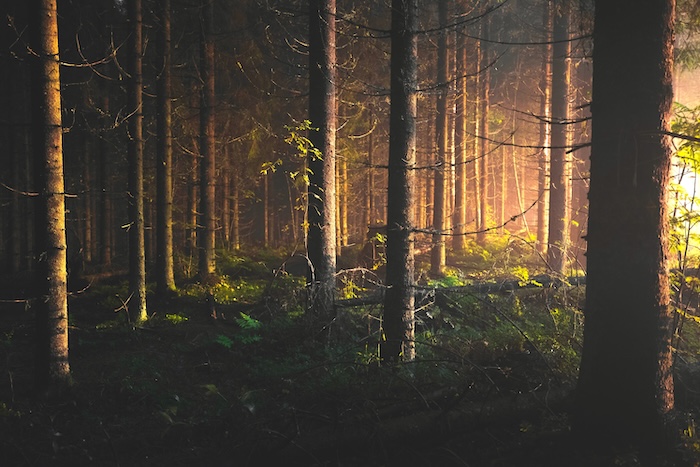Human Nature
The children speak with the trees.
They climb up along their sturdy, hundred-year-old trunks and hear their stories, all terrible and true. Then they whisper back their own tales, eyes wide and wondering, and the trees listen to the children.
But then the children grow up, and they forget all about their friends in the forest. They forget the language of rustling leaves and creaking branches, and learn that of oil drills and factory floors and, of course, the poisonous dollar. Their minds—and their unremembered trees—are polluted with greed.
I don’t blame them for it. Once, I was like them too. I spent my primary years living in New Sliving, a big concrete city coated in a thick smog. It had the garden-variety man-made parks and corporate retail stores, plus a smattering of abstract art museums and famous restaurants. Perfect for the conditioned city snob that I used to be. Everything there was carefully planned out and sectioned off, even, so it seemed, all the people. I mean, I had my parents and my friends, whom I loved dearly, but no one ever truly offered any meaning to my commercial existence.
Well. That is, with the exception of Pepper Yarrow.
I remember the day she moved into the apartment next to ours. Her earthy green patchwork dress and windswept red curls fascinated me, a stark contrast from my own pleated uniform skirt and drab brown hair that hung limp at the sides of my head. And as far as I could tell, she spent her days singing folk songs to flowers and asking questions to trees in the park.
Of course, rumors that she was a witch started weaving their way through the usual city goers' minds. It was never serious, just a sort of thing people liked to joke about. She became a tourist attraction of sorts; a one woman freak show. Everyone wanted to watch the crazy little witch discuss the meaning of life with a wilted maple or a graying old oak. She even called them all by name.
“Well, good morning, Mr. Stratier,” she would say to a swaying elm. “How are your leaves today? Feeling better than last week, I hope.” And she would nod and smile, or maybe grimace like she really heard a response. Her audience would laugh and cheer, and a young child might offer a few scant coins, to which her eyebrows would always lift in surprise.
“Why, thank you, friend,” she’d say, smiling graciously. I was never quite sure if she understood that these people were making fun of her.
At least, the adults were. Us children, curious as we were, leaned closer to hear Pepper’s seemingly one-sided conversations. There was something otherworldly to her demeanor that caused us to lend her our ears, I don’t know. I still can’t place it, even now.
We followed her around everywhere we could, and in time, we began to mimic her behavior, exchanging imaginary gossip with our favorite neighborhood friendly saplings. Our parents saw us and chuckled, dismissing it as a silly, childish sort of game, but to us, it became a way of life.
Through much influence and passage of time, we began to remember the lost language of trees. We became witches, like Pepper Yarrow and her hair that flowed like water. Our world expanded beyond New Sliving, and we learned the magic of nature’s patterns: how plants breathed life into the earth, how they warned us, how they poisoned, how they healed. We were an eccentric group both admired and hated by many, but always loved and welcomed by the forests.

